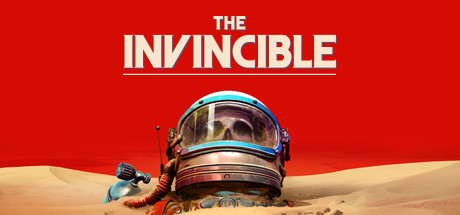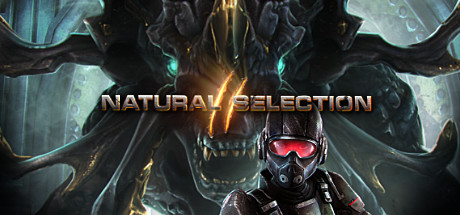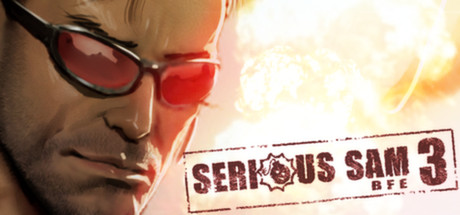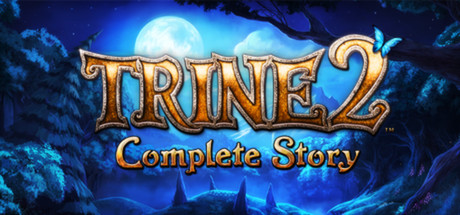The Invincible Reviews
Rethink human’s dominion in The Invincible: a story-driven adventure set in a hard sci-fi world by Stanisław Lem. Discover planet Regis III as scientist Yasna, use atompunk tools looking for a missing crew and face unforeseen threats. Make choices in a philosophical story that’s driven by science.
| App ID | 731040 |
| App Type | GAME |
| Developers | Starward Industries |
| Publishers | 11 bit studios |
| Categories | Single-player, Steam Achievements, Steam Cloud, Full controller support, Steam Trading Cards |
| Genres | Indie, Action, Adventure |
| Release Date | 6 Nov, 2023 |
| Platforms | Windows |
| Supported Languages | Portuguese - Brazil, French, German, Spanish - Spain, Simplified Chinese, Russian, English, Polish, Ukrainian |

7 127 Total Reviews
6 306 Positive Reviews
821 Negative Reviews
Very Positive Score
The Invincible has garnered a total of 7 127 reviews, with 6 306 positive reviews and 821 negative reviews, resulting in a ‘Very Positive’ overall score.
Reviews Chart
Chart above illustrates the trend of feedback for The Invincible over time, showcasing the dynamic changes in player opinions as new updates and features have been introduced. This visual representation helps to understand the game's reception and how it has evolved.
Recent Steam Reviews
This section displays the 10 most recent Steam reviews for the game, showcasing a mix of player experiences and sentiments. Each review summary includes the total playtime along with the number of thumbs-up and thumbs-down reactions, clearly indicating the community's feedback
Playtime:
2422 minutes
It is a fun walking simulator story game. The visuals are great and it sets up for a bigger 'universe' that you want to learn more from. It's like Mark Watney (The Martian) meets Fallout. You're wandering through the barren planet trying to survive and piece things together. I love the whole Fallout-esque design for the ships, buildings and vehicles.
👍 : 0 |
😃 : 0
Positive
Playtime:
423 minutes
This game is like playing a classic scifi story from one of the greats (well I mean it is Stanislaw Lem!). The pacing s terrific, the visuals are top notch. The play time seems about right.
Even though there are 14 (14?) potential endings I'm not sure it will get more than one play. How ever, nit's a great 7 to 8 hour play through.
👍 : 0 |
😃 : 0
Positive
Playtime:
438 minutes
What a great game.
If you like interactive stories, also known as walking simulators, this is by far the best I've played.
The story is engaging, the voice acting is great, and the gameplay is smooth. Everything makes sense and feels credible.
The game even seems to offer meaningful choices, though I didn’t cheat to check if they actually change the story.
All in all, a great experience, especially on sale.
👍 : 0 |
😃 : 0
Positive
Playtime:
917 minutes
This is basically Firewatch but actually interesting. This was a surprisingly engaging story that has you hooked from start to finish. Also worth replaying since there are multiple choices that can change the story. Very polished overall and worth playing if you want a good walking sim with some light puzzles.
👍 : 0 |
😃 : 0
Positive
Playtime:
382 minutes
Stunning. Thrilling. An absolute Marvel in every department: visuals, audio, story telling, value for money, all 10/10. Never saw anything like it, will play again to explore different decisions.
👍 : 0 |
😃 : 0
Positive
Playtime:
540 minutes
"The Invincible" (based on the science fiction novel written more than half a century ago, in 1964, during the Cold War by Stanisław Lem, where he invites us to reflect on technology, the space race, and the limits of human reason) is much more than a video game or an "interactive graphic novel"; it is a profoundly "philosophical experience" that invites reflection on technology, consciousness, evolution, and the place of the human being in the cosmos.
I will attempt to offer a philosophical analysis of "The Invincible", so that you can recommend it to others from a thoughtful and deep perspective.
---
### 🧠 *"A journey to the limits of science, consciousness, and humanism"*
---
### 🎮 What is *The Invincible*?
An interactive graphic novel with first-person narrative exploration elements, based on the work of Polish writer Stanisław Lem. The player takes on the role of Yasna, an astrobiologist stranded on the planet Regis III, where she discovers the remnants of a non-organic civilization that has evolved according to principles entirely alien to human understanding.
---
### 🔍 1. Philosophy of Consciousness: *What does it mean to be alive?*
One of the central questions of the game is:
> *"What constitutes a form of life?"*
Throughout the story, Yasna encounters *non-organic* forms of existence (automata, metallic swarms) that are not conscious in the human sense, yet act, adapt, and survive—multiplying without purpose. This confrontation recalls philosophical debates between **Cartesian dualism** (mind-body) and **monistic materialism**.
**Philosophical connection:**
Lem proposes that **"consciousness is not a prerequisite for evolutionary intelligence."**
* This resonates with philosophers such as **Daniel Dennett** and **Thomas Nagel**, who explore what it means to "feel" or "have a mind."
* The absence of subjectivity in the beings of Regis III challenges **anthropocentrism**: what if evolution does not need a mind to create complex structures?
---
### 🤖 2. The Ethical Problem of Technological Progress
The game critiques the idea that **scientific knowledge always leads to ethical progress or wisdom**.
> *"Should we act just because we can?"*
The human scientists in the story underestimate the consequences of their actions and end up triggering catastrophe. Here, Lem—and the game—warn us about the **limits of human knowledge and scientific arrogance**.
**Philosophical relations:**
* An echo of the **Prometheus myth**: the theft of fire (knowledge) that brings devastating consequences to humanity.
* Dialogue with **Hans Jonas** and his *“principle of responsibility”*: the need for an ethics tailored to modern technology.
* A critique of the naive optimism of **scientific positivism**, which assumes that every problem can be solved with more data.
---
### 🧬 3. Machinic Darwinism: *Evolution Without Consciousness*
One of the game’s most powerful themes is evolution that is **not Darwinian but post-biological**. The mechanical swarms on Regis III evolve without consciousness, without goals, without meaning or purpose—yet with **brutal, unchecked, unstoppable efficiency**.
This invites reflection on:
* The directionality of evolution: does evolution have an end? Or does it merely advance through natural selection—even in non-living systems?
* **Teleology** (the idea of purpose in nature) is constantly challenged. On Regis III, evolution does not aim for consciousness—only unconscious survival.
**Philosophically:**
* A rejection of **anthropocentrism**, in line with the **irrationalist and intuitionist philosophy** of **Nietzsche** and **Schopenhauer**, who question whether humans are truly the “end” of creation.
* It also echoes **Timothy Morton’s** concept of *“hyperobjects”*: systems so vast and alien that they surpass human understanding and evade rational control.
---
### 🌌 4. Cosmic Solitude and the Silence of the Universe
*The Invincible* joins a long tradition of **existentialist science fiction** by exploring the **loneliness of humanity in an indifferent universe**.
> *“What if the universe doesn’t answer us because it was never made for us?”*
This feeling permeates the game with an atmosphere of **melancholy and mystery**. Human life appears **insignificant** before the impersonal forces of nature and unstoppable alien technology.
**Philosophical connection:**
* Resonates with the ideas of **Albert Camus** and the **absurd**: the search for meaning in a universe that offers none.
* Also touches on the notion of **“cosmic horror”** (à la **Lovecraft**): what’s truly terrifying is not the universe’s hostility, but its **complete indifference**.
---
### 🧭 5. The Moral Dilemma of Non-Intervention
At the game’s climax, the player is faced with choices that question whether they should intervene in the ecosystem of Regis III (with 11 possible endings). Should we “save” it—or let the system run its course?
**This dilemma connects with:**
* **Kant’s categorical imperative**: is there a universal moral duty, even toward life forms we do not understand?
* **Deep ecology**: do we really have the right to alter alien ecosystems based on subjective human values?
The game offers no easy answers. Instead, it invites the player to **tolerate moral ambiguity**, to live with difficult doubts—like in the great Greek tragedies.
---
### 📚 Conclusion: *Why is The Invincible a philosophical work of art?*
Because *The Invincible* is not just a graphic novel; it is a **visual treatise on the limits of human knowledge, the fragility of consciousness, and the existential abyss** we face in a universe indifferent to the tragedy of human existence.
It is a game that **asks more questions than it answers**—and that’s exactly what makes it a **work of philosophy**.
---
### ✅ Why recommend it?
* Because it makes you **think while you play**.
* Because it **questions the human role** in the universe without needing combat or action.
* Because it **turns a space exploration into an inner journey**.
---
### 🗨️ *Quote from the game:*
> *“Maybe not everything in the universe is meant to be understood. Perhaps some things just… are.”*
---
### 🧠 Final reflection:
*The Invincible* reminds us that in a vast, silent, and often indifferent universe, our search for meaning may never yield clear answers. Yet this search itself—with all its wonder, ethical dilemmas, and tragic limits—is what makes us profoundly human.
On Regis III, we are not fighting enemies—we are confronting **incomprehension**, **uncertainty**, and the echo of our own decisions. And perhaps, as the game suggests, there is wisdom not in conquering the unknown, but in **recognizing that not everything must be conquered**.
If you share this, you're not just recommending a game—you're inviting others into a **philosophical science fiction experience**, where every step is not only **forward**, but also **inward**.
👍 : 1 |
😃 : 0
Positive
Playtime:
830 minutes
Highly recommend this game!
I'm a big fan of games like Firewatch and The Invincible is right up there. Great science fiction story, which I loved how your choices in the game were reflected in the graphic novel that would unlock piece by piece as you progressed through the story.
👍 : 0 |
😃 : 0
Positive
Playtime:
551 minutes
If you're a fan of hard sci-fi, cerebral storytelling, a lot of talking back and forth, and walking around in beautiful and mysterious surroundings, this game's for you. If you're not into walking simulators, people having long conversations about alien planet conservation, and hard choices, then this game ain't for you. Basically you play as Yasna, a biologist on a mission to an alien world that has gone wrong, and now you have to rescue the rest of your crew, solve alien mysteries, and get off this planet. It's a fairly linear experience although there are choices you will make along the way that will change the outcome of the story. It's got great visuals and music and impeccable hard sci-fi vibes. I did have it crash to desktop once during an auto-save though. In fact, if I have one complaint about it is that this game could use a manual save system.
👍 : 1 |
😃 : 0
Positive
Playtime:
422 minutes
Its very similar to a visual novel in terms of gameplay, but the story is pretty good. Solid 4/5, Get it on sale.
👍 : 1 |
😃 : 0
Positive
Playtime:
657 minutes
This game made me cry, not even from sadness, it's just too damn beautiful of a game, I didn't want it to end.
No game has even had me this emotionally attached to it's story and characters.
The choices actually felt important and truly affected your story and the path you take.
If you are someone that loved Interstellar this game is for you.
👍 : 11 |
😃 : 1
Positive







